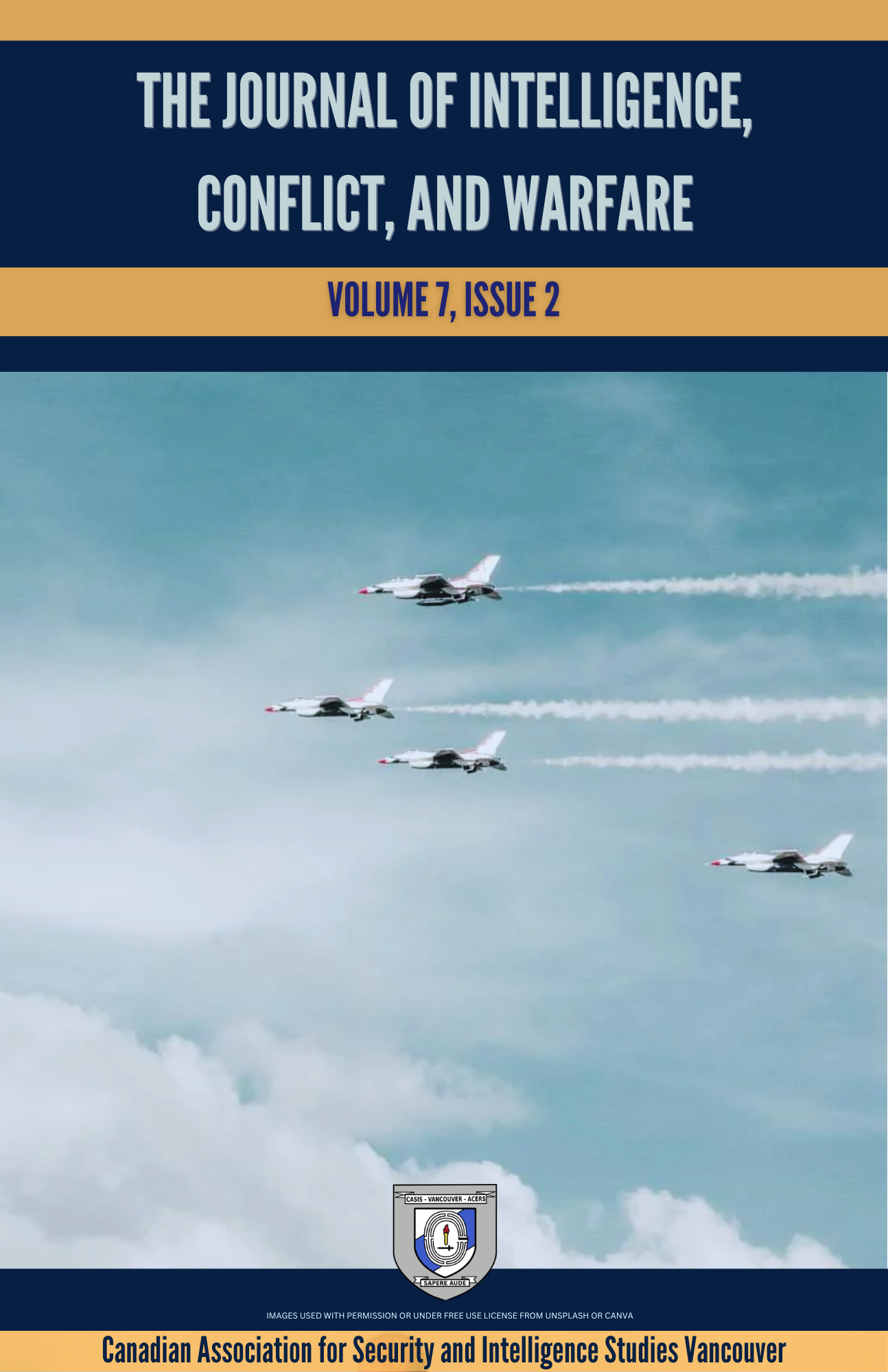Vol. 7 No. 2 (2024)
We live in a state of evolving warfare. The days of state-based conflict, defined by its policies of changing state governance, strategies of resisting state authority, and other precise mechanisms of action, are no longer. By contrast, the impacts arising from social discordancy and fights for identity preservation enable social movements that engender violence and restructure the threat environment.
Warfare, often defined as the friction accompanying the struggle to preserve, maintain, or create cultural ways of life under an existential threat, was once viewed as exclusively state-focused. While this perspective is continually significant, the current focus of attack is not on the state itself but rather, that which makes up the state: the human infrastructure, or the systems of interrelationships, well-being, and other insecurities that are non-ideological and non-religious. Although these relationships often occur between the plural identity-based groups within a particular state, there is a transnational element to these effects that transcends typical state borders. This shift denotes a necessity to view security and defence with an updated perspective, pondering over that which we do not see or consider to be threats - invisible insecurities - rather than existing threats.
Attacks on the human infrastructure engender strain on the relationships within a society, and are manipulated by malicious entities to gain power through an increase in social discohesion. This process is characterized by polarization, misinformation and disinformation, a rise in extremist expressions, and other aggressive assertions of identity well-being that aim to sow distrust and disaccord.
Measuring the ripple effects of these imbalances within our communities is not included in existing risk or security assessments across public safety policies. Conversely, an issue is only identified once there is an incitement to violence.
The articles and briefings included in this new issue of the Journal of Intelligence, Conflict, and Warfare explore mechanisms driving the intersections of warfare and social conflict. They utilize a variety of perspectives, employing a range of regional to interstate case studies, to skillfully analyze attacks on the foundations of society and the strategic frameworks needed to ameliorate social well-being. In the opening article, "Canada and Economic Security: The Way Ahead", Dr. Stéphane Lefebvre proposes the creation of a National Economic Security Strategy in Canada. He identifies the need for a new strategic framework combining economic and national security considerations, supported by an intelligence-based all-source threat assessment of foreign economic threats. On page 23, Nathan Decety focuses on interstate conflicts and tests the influence of corruption on the probability of both victory and defeat of a state. His article, "Fighting on Quicksand: Corruption Weakens State Capacity in War", uses a series of regression analyses to determine the effects of relative corruption on corrupt countries and their correlated losses. Alongside these informative contributions, we are pleased to include Briefing Notes from the 2024 CASIS Vancouver Digital Roundtable Series, delivered by Dr. Patrick Neal ("Hacking Humans: The Next National Security Threat"); Dr. John Gilmour ("An Overview of the Intelligence Enterprise in Canada"); and Dr. M.V. Ramana ("The Inextricable Relationship Between Nuclear Energy and the Bomb"). Furthermore, we have included Briefing Notes from our 2024 Defence and Security Advisory Network, a workshop for practitioners and academics in the security and intelligence space to be equipped with contemporary knowledge and practical models. This year’s workshop featured presentations by Dr. Corrine Schuster-Wallace (“Local Water Security”), authors from the upcoming publication of “(In)Security: Identifying the Invisible Disruptors for Security”, edited by Dr. Gitanjali Adlakha-Hutcheon ("In-between Spaces: Unconventional Yet Essential Considerations for Defence and Security") and myself, who presented alongside Mr. Sam David, Ms. Millie Harron, and Mr. Evan Kryski ("Spectacle Violence Actors").
Amidst changing dynamics of warfare and the heightened presence of invisible disruptors to our daily ways of life, it is my hope that our specifically curated collection of security products may incite discussion and critical thinking processes.
Sincerely yours,
Candyce Kelshall
JICW Editor-in-Chief
